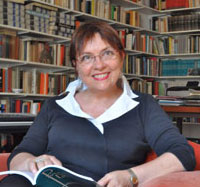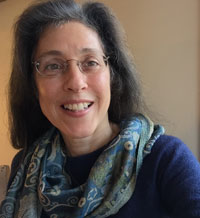By Jenna Davino (USA)
The Child, Adolescent, and Parent Psychotherapy Committee, along with IARPP as a whole, deserve acknowledgement for their efforts to create learning opportunities for early-career professionals. At the recent IARPP conference in New York City, this committee, chaired by Susanna Federici (Italy) and Ann Marie Sacramone (USA), invited four early-career professionals to present their clinical work alongside experienced analysts, teachers, and mentors. This pre-conference panel, chaired by Amy Joelson (USA), was entitled “Hope and Dread—Adolescents as Agents of Change in Families and Communities: Relational Clinical Path.”
During this workshop Beatrice Beebe (USA) shared her research on infant-mother interactions, encouraging the participants to think in terms of communicating affect rather than regulating affect. Continuing on this relational path, the four early-career clinicians presented material exploring how adolescents act as agents of change within their families and communities. The committee’s choice to include new voices proved fruitful, with the discussants noting a sense of connection and hope, despite despairing times, in each presentation.
The first presenter was Aleksandra Misiolek (Spain). Sharing two clinical vignettes, she described the complicated jigsaw puzzle she experiences when working with immigrant patients, especially in relation to her identity as a Polish immigrant psychotherapist. Aleksandra described the complex and often traumazing phenomenon of immigration and the impact this has on adolescents and families in psychotherapy.
Paola Davanzo (Chile) next presented a case involving an older adolescent struggling with alcohol abuse. Together Paola and her patient came to understand that his heavy drinking was related to his not having being seen by his parents, with his needs not recognized. Paola’s impression was that her patient felt encouraged to stay in treatment because he realized that his recovery was valuable to Paola, and because she trusted him even though there was still a lot of work to do. It became important to her patient to have someone witness and recognize his efforts to recover.
Fabia Banella (Italy) presented a vignette in which she explored the birth of the relationship with her young patient, a 12-year-old girl, who was experiencing fears that were freezing her capacity to engage in the world. Fabia focused on their jointly- constructed process of affect regulation, one in which they would communicate using their bodies in creative ways. For example, at the beginning of each session Fabia and her patient would move the armchairs out of the way to create a space for the girl’s acrobatics and pirouettes. Fabia was amazed by her abilities, with her feelings of admiration contributing the capacity for both members of the dyad to embrace fears and support hope.
During Jenna Davino’s (USA) presentation she discussed her integration of psychoanalytic understanding with her work as a victim advocate, sharing a case in which her awareness of implicit communication contributed to the interpersonal regulation of her patient’s affect states. Jenna gave a sense of the holding environment co-created within the psychotherapeutic dyad, a space in which her patient was able to develop an organized narrative of her life and gain a sense of agency.
The discussants, Frances LaBarre (USA), Macarena López Magnasco (Chile), Marco Bernabei (Italy), and Gerard Webster (Australia), brought their years of experience to the case discussions, encouraging the case presenters to consider the deeply personal and political nature of relational psychoanalysis.
Several themes arose as each early-career psychotherapist creatively expanded on the usual understanding of the psychoanalytic frame. The adolescent treatments included parents, pets, and play, and the clinicians took relational leaps of faith, trusting in themselves and their patients. The deeply-attuned moments in treatment that these clinicians described provided the room for their adolescent patients to act as agents of change within their families and larger communities.
This pre-conference workshop better connected us, the members of the Child, Adolescent, and Parent Psychotherapy Committee, to our international IARPP community. Sharing ideas with colleagues from so many countries, and at various stages in their professional development, was a vitalizing and motivating experience for all who participated. Bringing together diverse viewpoints enriched the panel. We wish to thank the Child, Adolescent, and Parent Psychotherapy Committee and members of the IARPP community for this opportunity.
 Jenna Davino, LCSW
Jenna Davino, LCSW
Email Jenna Davino




